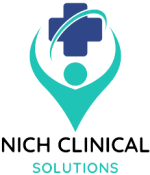Clinical trials are fundamental in transforming innovative ideas into effective medical treatments. They serve as the bridge between laboratory research and practical applications, ensuring that new therapies are safe, effective, and beneficial for patients. Here’s a closer look at how clinical trials contribute to the development of new treatments:
1. Testing Safety and Efficacy
Clinical trials rigorously test new treatments to determine their safety and efficacy. Before a new drug or therapy is made available to the public, it must undergo a series of trials to ensure it performs as intended without causing unexpected harm. This process helps identify any potential side effects and confirms that the treatment provides the desired health benefits.
2. Refining Treatment Protocols
Through various phases of clinical trials, researchers gather critical data that helps refine treatment protocols. These trials provide valuable insights into the optimal dosages, administration methods, and potential interactions with other treatments. This refinement is essential for developing effective treatment plans that maximize benefits while minimizing risks.
3. Enhancing Medical Knowledge
Clinical trials contribute significantly to the broader medical knowledge base. By studying how new treatments work and their impact on different patient populations, researchers can uncover valuable information about disease mechanisms and treatment responses. This knowledge not only advances specific treatments but also contributes to the overall understanding of medical conditions and therapeutic approaches.
4. Accelerating Innovation
The clinical trial process accelerates the development of new treatments by systematically evaluating innovative therapies. By conducting trials, researchers can quickly identify promising treatments, address challenges, and make informed decisions about advancing or modifying the therapy. This systematic approach helps bring breakthrough treatments to market more efficiently, benefiting patients sooner.
5. Supporting Personalized Medicine
Clinical trials play a crucial role in the advancement of personalized medicine. By studying how different individuals respond to treatments, researchers can develop therapies tailored to specific genetic profiles or health conditions. This personalized approach enhances treatment effectiveness and reduces the likelihood of adverse reactions, leading to better patient outcomes.
6. Regulatory Approval and Public Access
Successful clinical trials provide the evidence needed for regulatory agencies to evaluate and approve new treatments. These trials ensure that only safe and effective therapies are made available to the public. Once approved, new treatments can significantly improve patient care and offer new options for managing various health conditions.
In summary, clinical trials are indispensable for developing new treatments and advancing medical science. At Nich Clinical Solutions, we are dedicated to conducting thorough and rigorous trials to bring innovative therapies to patients and contribute to the future of healthcare.

